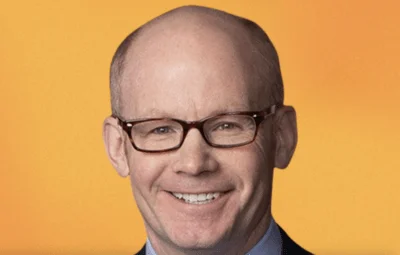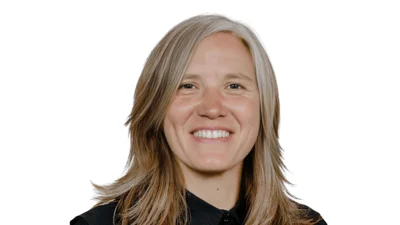Building on the administration's funding increases for child welfare and wellbeing, today Governor Pritzker announced the Children's Behavioral Health Transformation Initiative to evaluate and redesign the delivery of behavioral health services for children and adolescents in the State of Illinois.
The Governor tasked the Initiative with building a coordinated, inter-agency approach to ensure young people with significant behavioral health needs receive the community and residential services they need to thrive while providing parents, guardians, and family members with transparency and clarity in the process. The initiative will provide a transformation blueprint by the end of 2022. The Governor also named Chapin Hall child welfare expert Dana Weiner, PhD, as Director of the Children's Behavioral Health Transformation Initiative.
"I'm launching the Children's Behavioral Health Transformation Initiative to evaluate and redesign the systems that support our most vulnerable kids and adolescents - so that down the line, Illinois families will be better able to access holistic, wraparound support for children in need," said Governor JB Pritzker. "Under the leadership of nationally recognized child welfare expert Dana Weiner, PhD, and six state agency heads, this Initiative will deliver a transformative blueprint by the end of the year."
"Illinois has a strong foundation on which to build; we need an intentional, coordinated strategy that leverages the strengths of our human service agencies, providers and communities to provide families with consistent, accessible, transparent solutions to the challenges they face," said Children's Behavioral Health Transformation Director Dana Weiner. "We can do better for our children and families - we must do better."
Building on Investments in Child Welfare
Since coming into office, the Governor has worked with the General Assembly to increase state support for Illinois' most vulnerable. That includes additional funding for the Support Services Team at DHS to provide services for children with developmental disabilities as well as dedicating an additional $100 million these past three years to congregate care and therapeutic settings at DCFS.
Governor Pritzker has increased funding for DCFS from $1.2 billion in FY2019 to $1.55 billion in FY2022 with a proposed additional increase to $1.8 billion this coming fiscal year. The Governor's proposed fiscal year 2023 budget provides a new investment of $7 million for a completely redesigned independent living program which will better support youth transitioning out of DCFS' care.
Additionally, the Pritzker Administration recently launched an $86 million effort to support local efforts to develop comprehensive school systems grounded in mental health and trauma.
The FY2023 budget also includes $150 million to fully implement the Pathways to Success program at DHFS, which helps Medicaid-enrolled children under age 21 who have complex behavioral health needs and require intensive services and support. The program will begin upon federal CMS approval without any additional implementation action from the GA.
"Arguably these have been three of the most difficult years our children have faced in the recent past with their mental health," said State Representative Deb Conroy (D-Elmhurst). "I would like to thank Governor Pritzker for appointing Dr. Dana Weiner to spearhead the very complex issues our children are facing."
"I am confident that the experience Dana Weiner brings to state government will help realign a fragmented system in order to do what is best for children and families," said State Senator Sara Feigenholtz (D-Chicago). "Resolving the challenges we face around children's behavioral health is the most important investment we can make to keep Illinois families together."
"Today is a big day for our children, and I am glad that Governor Pritzker is taking this step in bringing together state agencies to coordinate efforts across the government and the state toward better mental health for our children," said Senator Mike Simmons (D-Chicago). "I also am very happy that our very own 7th District agency, Lawrence Hall, will play a major part in the transformation."
"This partnership is transformative for children and families seeking mental and behavioral health care in Illinois," said Senator Laura Fine (D-Glenview). "The commitment of the Governor and the Legislature to children's behavioral health will bring needed care throughout the state. As the chair of the Senate Mental and Behavioral Health committee, I have been a longstanding advocate of this issue, and I am excited to see how this new partnership will positively impact children and families in our communities."
Dana Weiner, PhD, comes to the Administration from the renowned research center Chapin Hall at the University of Chicago, where she provided child welfare policy guidance and analysis for jurisdictions across the nation. Previously, she served on the state's Child and Family Services Advisory Council and the Illinois Juvenile Justice Commission, in addition to serving as Senior Policy Advisor to the Director of the Illinois Department of Children and Family Services, and as the Evaluation Liaison for the Permanency Innovations Initiative. Weiner obtained a PhD in Clinical Psychology from Northwestern in 1999 and a Bachelor of Science from Cornell University in 1992.
"Since his first day in office Governor Pritzker has prioritized identifying and solving systemic problems in Illinois' social safety net, including the challenges that come with serving and supporting our children and youth that have behavioral health and developmental disability support needs," said Josh Evans, President & CEO of IARF, which advocates on behalf of Illinois providers serving and supporting children and adults with intellectual/developmental disabilities. "The Governor's multi-state agency collaboration with the University of Chicago's Chapin Hall, a nationally renowned research group on child and family well-being, proves to Illinoisans that the Administration wants comprehensive solutions to long-standing issues, not band-aid approaches that have failed in the past."
A Comprehensive Children's Behavior Health Plan
Throughout his tenure, Governor Pritzker has worked to increase interagency coordination throughout state government, making systems more efficient and accessible for Illinois' most vulnerable residents. While existing state programs include psychiatric care, outpatient mental health and behavioral health treatment, intensive outpatient programs, and residential or inpatient programming, the lack of historical coordination has allowed children with the most complex and greatest needs to fall through the cracks.
At Governor Pritzker's direction, HFS, DHS, DCFS, ISBE, DPH and DJJ have put together an interagency working group to better support children in need of behavioral health services and their families, whether they access services in their community, at their school, or through a residential program. The Children's Behavioral Health Transformation Initiative turns that collaboration into a formal, step-by-step review of existing systems in order to better support Illinois children and families.
- The Children's Behavioral Health Transformation Initiative will examine:
- Needs of children requiring behavioral health services
- Allocation of resources to meet needs within existing programs
- Pathways for accessing needed services
- Eligibility requirements for levels of care
- Decision-making practices for allocation of resources
- Alignment of policies, rules, regulations to support transparent, efficient, and effective service delivery
- Barriers to effective interagency coordination
- Infrastructure needs to support new pathways and existing programs
- Best practices from other comparable child-serving systems across the country
"The establishment of the Interagency Working Group comes at a time when many of our families are in acute crisis - forced to make unthinkable decisions about sending their children out of state just to get their care they need," said State Representative Lindsey LaPointe (D-Chicago). "Today, we take a big step to make Illinois work for not only all our families, but also our providers who we have undervalued for far too many years."
"Children across Illinois have far too long paid the price for a lack of comprehensive mental and behavioral health care in this state," said State Senator Karina Villa (D-West Chicago). "I look forward to joining the dedicated team at Chapin Hall in seeking effective solutions for our children and their families."
Statewide, approximately 17,800 students ages 3-21 are eligible for special education services under the eligibility of emotional disability. 19,000 students with disabilities have a behavior intervention plan included in their individualized education plan. 100,000+ students with disabilities receive social work, psychological, or counseling services. 22,000 youth are currently being served by DCFS. DHFS and Medicaid MCOs provide mental health services to over 150,000 youth.
"The Illinois Chapter of the American Academy of Pediatrics is thrilled about the Governor's investment in addressing the children's mental health crisis in Illinois," said Mary Dobbins, MD, FAAP President, Illinois Chapter of the American Academy of Pediatrics. "As pediatricians, we see children and families every day who are struggling and needing help to navigate complex systems of care to obtain the services and support they need. We look forward to working closely with Dr. Weiner and the state in tackling this urgent issue."
"At Lurie Children's, we know that parents in communities across Illinois rate children's mental health as their leading concern for children's health overall," said Thomas P. Shanley, MD, President and CEO, Ann & Robert H. Lurie Children's Hospital of Chicago. "We commend Governor Pritzker for taking such an important step today to address the child and adolescent mental health crisis and we look forward to continuing to work with local and state partners to take a whole-child approach in schools, neighborhoods, clinics, and hospitals - wherever children and adolescents need us."






 Alerts Sign-up
Alerts Sign-up